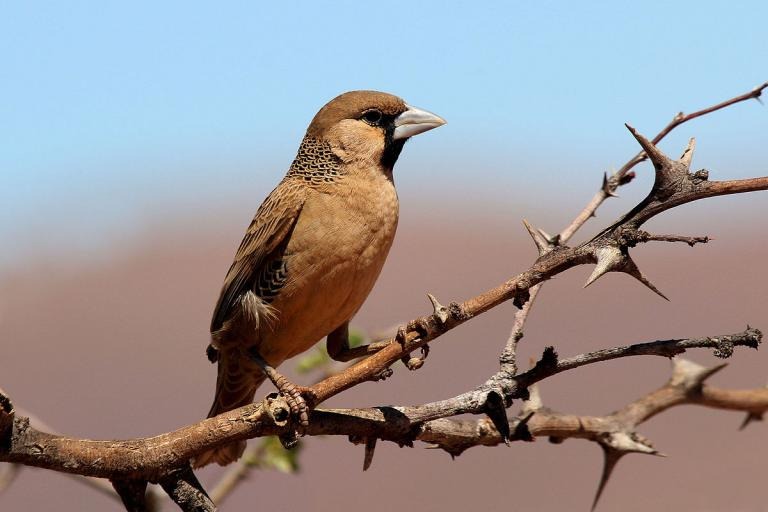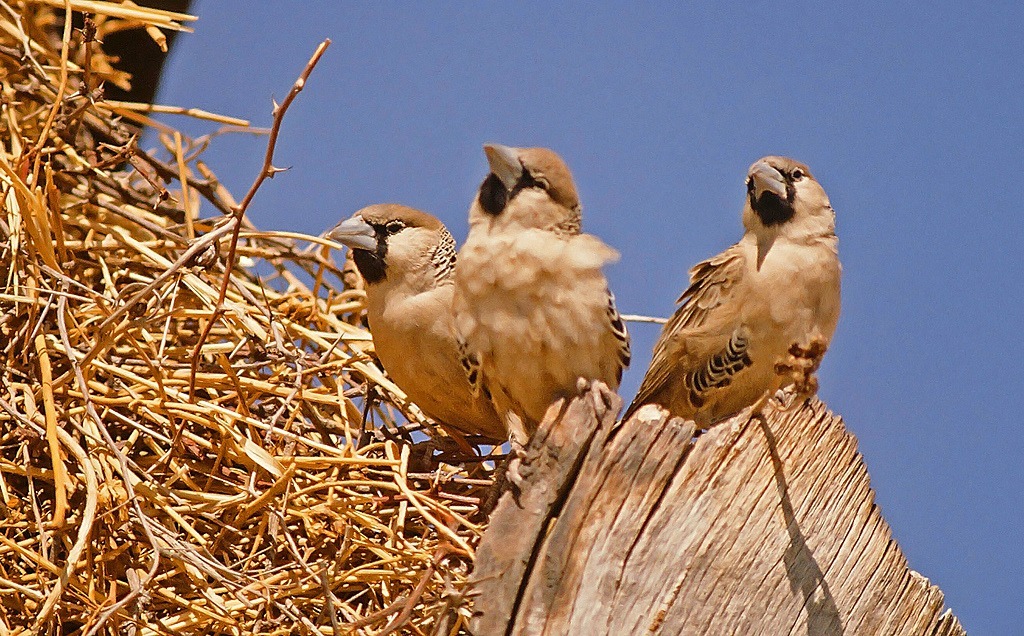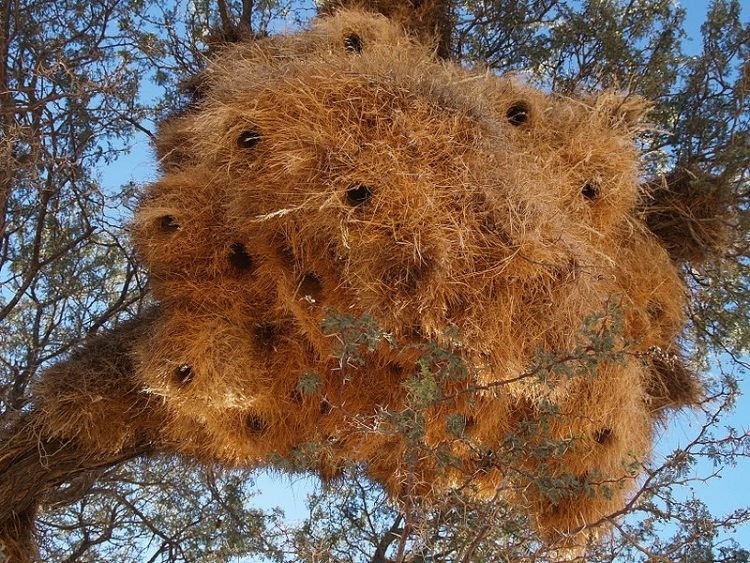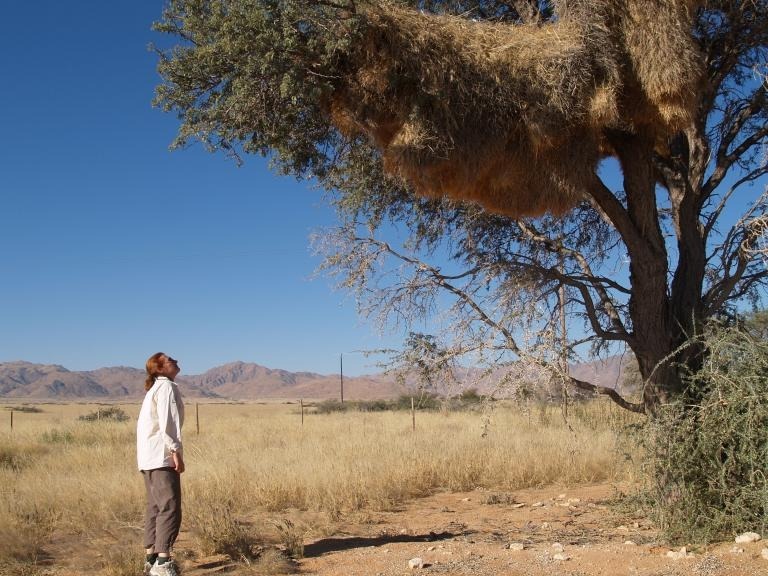Nestled in the vast, open spaces of South Africa is a little, bold bird called the Common Social Weaver. Its name accurately describes the bird’s ability to build communal nest dormitories during evolution.

Together, weaver birds construct nests that remain unbroken for over a century, spanning not just generations but centuries. These multi-story dorms are built using complex processes and have rooms designated for various uses.

The nests feature social areas for groups of three to five birds as well as private rooms for breeding, and there are even passageways with a smart snake defense system installed.

The birds attach spiky twigs in precise ways to obstruct possible reptile intruders. Every nest has multiple actual and deceptive entrances that may hold hundreds of birds at once.
The difficult desert climate, with its drastic changes in temperature, humidity, and pressure, is the driving force behind these intricate constructions.

Within the nest, a consistent microclimate protects the birds against predators, rain, dust, cold, and dry spells.


However, issues arise when raptors may breach the defenses and cage the birds inside the elaborate nest.

Additionally, selecting the proper support for the nest may be essential because an incorrect selection could cause the entire structure to collapse when the supporting tree gives way beneath the weight of the nest.






